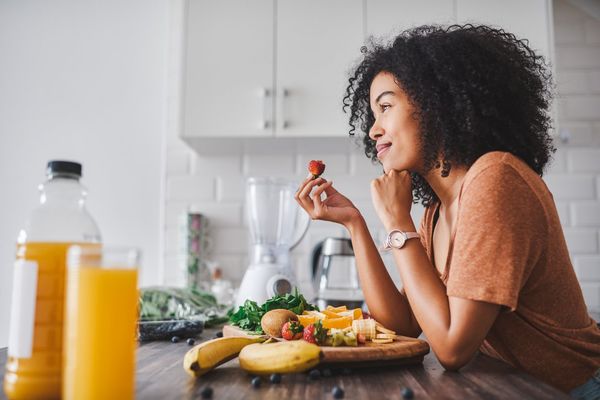
THURSDAY, Dec. 1, 2016 (HealthDay News)—Vegetarian diets are healthy for people of all ages, as well as the environment, according to a new update of the Academy of Nutrition and Dietetics' (AND) position on vegetarian diets.
Studies show that vegetarians generally have lower risks of obesity and chronic diseases such as type 2 diabetes, heart disease and certain cancers, according to the AND. That includes vegans—who eschew not only meat and fish, but all animal products, including dairy.
On top of that, the new report said the diets are kinder to the environment.
It takes far fewer resources—land, water, fuel and fertilizer—to produce a pound of kidney beans than a pound of beef, for example.
"Vegetarian diets leave a lighter carbon footprint," said Susan Levin, one of the report authors and director of nutrition education at the nonprofit Physicians Committee for Responsible Medicine in Washington, D.C.
The AND's expertise is nutrition, but it chose to include the environmental aspect in the report because of growing evidence that vegetarian diets do less harm to the planet, according to Levin.
"The evidence has become really hard to ignore," she said.
The report, in the December issue of the Journal of the Academy of Nutrition and Dietetics, also stressed another point: Vegetarian diets can be safe and healthy for people of any age.
According to Levin, the science has long shown that. But there are still lingering misconceptions that plant-based eating is unsound for children.
"No one should doubt that vegetarian diets are safe at all life stages, including infancy, childhood and adolescence," Levin said.
In fact, she added, studies show that children on vegetarian diets eat more fruits and vegetables, and fewer sweets and salty snack foods. They're also less likely to be overweight or obese.
The academy also noted that vegetarian and vegan diets can be safe during pregnancy and lactation. These diets can also be fine for athletes and the elderly, the report said.
A registered dietitian who reviewed the report agreed that plant-based diets can be nutritionally sound. And they've moved into the mainstream.
The latest U.S. government dietary guidelines include a vegetarian diet as one of three examples of a healthful eating plan, said Connie Diekman, director of university nutrition at Washington University in St. Louis.
Still, any diet is only as good as a person's food choices. If you subsist on white rice, Levin pointed out, that might be technically vegetarian, but not nutritious.
So it's important to eat a variety of foods, she said—including a range of whole grains, beans, fruits and vegetables, and nuts and seeds.
Vegetarians and vegans do need to be mindful to get enough of certain nutrients such as vitamin B12, which is present only in animal products, Diekman said.
According to the AND report, vegans should take supplemental vitamin B12. Vegetarians usually need supplements or B12-fortified foods, too, the group said—since their dairy intake may not supply enough of the nutrient.
But, Levin said, B12 is the only supplement vegans need. They can get all of their other nutrient needs from food.
That's counter to the common myth that vegetarians have a tough time getting enough nutrients such as protein, calcium and iron, Levin said.
"If you're consuming enough calories, you will get enough protein," she said.
But, the report noted, it's important to make wise food choices: Calcium from vegetables like kale, turnip greens and bok choy is much better absorbed than calcium from high-oxalate vegetables such as spinach and Swiss chard, for example.
According to Diekman, people who want to go vegetarian can get help from a registered dietitian in crafting a new way of eating.
And for those unwilling to give up meat, she said, simply getting more plant-based foods onto their plates is a healthy step.
Levin made another point: Vegetarian diets have gotten a reputation as being ones of "privilege." But they can be affordable, and based on products readily available at the local grocery store, she said.
"The food does not have to be organic, or fresh," Levin said. "You can use canned beans and frozen vegetables."
As for the potential health benefits, studies have found that vegetarians and vegans tend to weigh less and have lower cholesterol levels than omnivores do. They also tend to have lower risks of high blood pressure, heart disease, type 2 diabetes and certain cancers, such as cancers of the prostate and gastrointestinal tract.
"If there were a pill that did all of that," Levin said, "everyone would be taking it."
SOURCES: Susan Levin, M.S., R.D., director, nutrition education, Physicians Committee for Responsible Medicine, Washington, D.C.; Connie Diekman, M.Ed., R.D., director, university nutrition, Washington University, St. Louis; Dec. 2016, Journal of the Academy of Nutrition and Dietetics
Copyright © 2016 HealthDay. All rights reserved.






